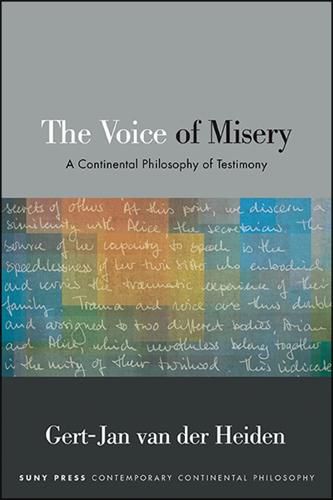Readings Newsletter
Become a Readings Member to make your shopping experience even easier.
Sign in or sign up for free!
You’re not far away from qualifying for FREE standard shipping within Australia
You’ve qualified for FREE standard shipping within Australia
The cart is loading…






This title is printed to order. This book may have been self-published. If so, we cannot guarantee the quality of the content. In the main most books will have gone through the editing process however some may not. We therefore suggest that you be aware of this before ordering this book. If in doubt check either the author or publisher’s details as we are unable to accept any returns unless they are faulty. Please contact us if you have any questions.
From analytic epistemology to gender theory, testimony is a major topic in philosophy today. Yet, one distinctive approach to testimony has not been fully appreciated: the recent history of contemporary continental philosophy offers a rich source for another approach to testimony. In this book, Gert-Jan van der Heiden argues that a continental philosophy of testimony can be developed that is guided by those forms of bearing witness that attest to limit experiences of human existence, in which the human is rendered mute, speechless, or robbed of a common understanding. In the first part, Van der Heiden explores this sense of testimony in a reading of several literary texts, ranging from Plato’s literary inventions to those of Kierkegaard, Melville, Soucy, and Mortier. In the second part, based on the orientation offered by the literary experiments, Van der Heiden offers a more systematic account of testimony in which he distinguishes and analyzes four basic elements of testimony. In the third part, he shows what this analysis implies for the question of the truth and the truthfulness of testimony. In his discussion with philosophers such as Heidegger, Derrida, Lyotard, Agamben, Foucault, Ricoeur, and Badiou, Van der Heiden also provides an overview of how the problem of testimony emerges in a number of thinkers pivotal to twentieth- and twenty-first-century thought.
$9.00 standard shipping within Australia
FREE standard shipping within Australia for orders over $100.00
Express & International shipping calculated at checkout
This title is printed to order. This book may have been self-published. If so, we cannot guarantee the quality of the content. In the main most books will have gone through the editing process however some may not. We therefore suggest that you be aware of this before ordering this book. If in doubt check either the author or publisher’s details as we are unable to accept any returns unless they are faulty. Please contact us if you have any questions.
From analytic epistemology to gender theory, testimony is a major topic in philosophy today. Yet, one distinctive approach to testimony has not been fully appreciated: the recent history of contemporary continental philosophy offers a rich source for another approach to testimony. In this book, Gert-Jan van der Heiden argues that a continental philosophy of testimony can be developed that is guided by those forms of bearing witness that attest to limit experiences of human existence, in which the human is rendered mute, speechless, or robbed of a common understanding. In the first part, Van der Heiden explores this sense of testimony in a reading of several literary texts, ranging from Plato’s literary inventions to those of Kierkegaard, Melville, Soucy, and Mortier. In the second part, based on the orientation offered by the literary experiments, Van der Heiden offers a more systematic account of testimony in which he distinguishes and analyzes four basic elements of testimony. In the third part, he shows what this analysis implies for the question of the truth and the truthfulness of testimony. In his discussion with philosophers such as Heidegger, Derrida, Lyotard, Agamben, Foucault, Ricoeur, and Badiou, Van der Heiden also provides an overview of how the problem of testimony emerges in a number of thinkers pivotal to twentieth- and twenty-first-century thought.